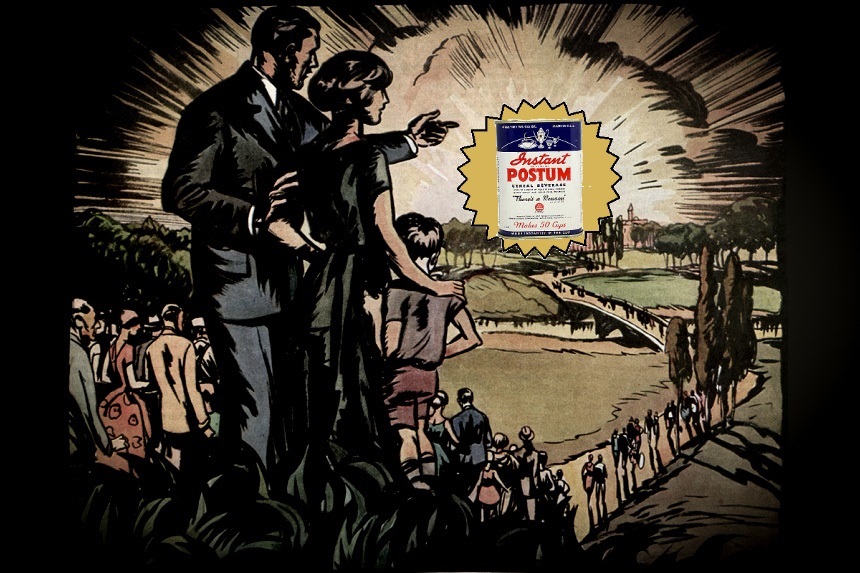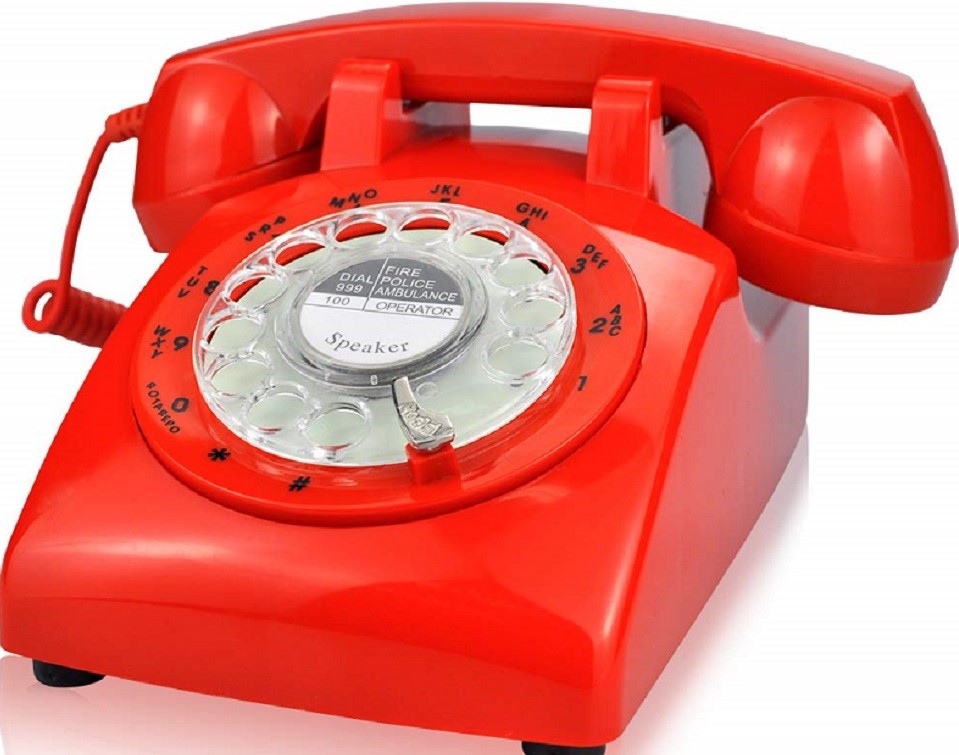Not Dead Yet: Ten Things with Greatly Exaggerated Demises
They thought that The Saturday Evening Post was dead. It’s true that the Post did cease publication for a time, 50 years ago this week. However, as we’ve discussed in the past, Beurt SerVaas acquired Curtis Publishing Company in 1970 and brought it back, where it’s remained alive in print and online ever since. And yet, we still find people that, on occasion (we’re looking at you, Planet Money), didn’t realize that we were still around. And we’re not alone. Here are nine other enduring institutions with demises that have been greatly exaggerated.
1. Postum

Our own Nick Gilmore recently wrote about the health drink Postum. The “cereal drink” that was promoted as an alternative to coffee went away for a bit beginning in 2007, but new owners acquired it in 2012. While it’s true that it had a period of inactivity, so did Twinkies and Coca-Cola Classic, both of which also made triumphant returns.
2. Guitar Groups
It might be the most famous rejection in history. 1n 1962, Decca Records shot down The Beatles. While some stories have tried to pin the rejection on executive Dick Rowe, others said that Rowe wasn’t even present. Regardless, Beatles manager Brian Epstein frequently cited that the band wasn’t signed because “guitar groups were on the way out.” Obviously, that was wrong, as The Beatles would lead the British Invasion that spawned and influenced a seemingly endless parade of bands worldwide. Today, some pundits think that guitar groups are on the way out again, which is a conclusion that Foo Fighters, Ghost, and many others would no doubt dispute.
3. Cobblers
Guess what? Shoe repair shops and craftspersons are still around. Places like Cento Shoes in Indianapolis, Red Star Cobbler in Chicago, and Village Cobbler in L.A. keep the tradition alive.
4. Macramé
What 1970s home didn’t have a macramé plant hanger? Though dismissed in the intervening years as a fad, it a) never really went away, and b) has been around since at least the 13th century. The term is derived from the Arabic word migramah, which means “fringe.” Recently, fashion blogs and magazines began to report on the “return” of the form, despite the fact that it was never really gone.
5. Jiffy Pop

The frequent rumors of Jiffy Pop’s demise may have more to do with the fact that it doesn’t run as many of the ads that were ubiquitous in the 1970s and 1980s. Nevertheless, the pan-and-popcorn combo can still be found hanging around your local grocery, courtesy of ConAgra Foods.
6. Crocs
It seems like people have been trying to kill Crocs for years. They’ve had television editorials, magazine essays, blogs, and comedians allied against them. And what they’ve done in return is sell 300 million pairs of shoes. A lot of the rumors around the death of Crocs stem from some of the financial troubles and restructuring that the company has gone through at various points between 2011 and 2014. However, despite closing their last company-owned plants in 2018, the creators of those “foam clogs” keep on walking.
7. Tickle Me Elmo
This is more of a common misconception that a “fad toy” went away. Back in 1996, the Tickle Me Elmo doll, based on the beloved (or hated, by some parents) Sesame Street character flew off the shelves, occasionally resulting in department store fights that hadn’t been seen since the advent of Cabbage Patch Kids (which are, incidentally, also still around). Though the initial craze died down a little bit, new versions of Tickle Me Elmo have been released continually, with special editions hitting in 2006, 2007, and 2012. The latest 2017 edition can still be found in toy aisles.
8. Radio Dramas
An uncommonly large group of Americans believes that radio dramas died the second that the first TV was plugged into the wall of a suburban home. In fact, radio drama continues to flourish around the world, including in countries like India, Germany, and Japan. In England, the BBC still carries The Archers, the longest-running radio soap opera in the world. Additionally, programs like Doctor Who still do radio installments. In the U.S., a variety of outlets, including digital stations, terrestrial stations, and online networks, carry audio dramas, including projects underwritten by the American Council for the Blind.
9. Rotary Telephones

This is America; if you can make a buck on it, you can sell it. And that includes both rotary-dial and “push-button” landline phones. Though not necessarily available in every store, these are quite findable online and are being made in new and retro styles by various companies. Voice-over-IP will not work on older rotaries without an adapter, but traditionally active landline outlet jacks will work just fine with these styles. Expect to pay in the $30 to $60 range to reach out and own one.
10. The Saturday Evening Post
And, as we said . . . us. Despite assertions to the contrary, we’re still around, online and in print, and we don’t plan on going anywhere.